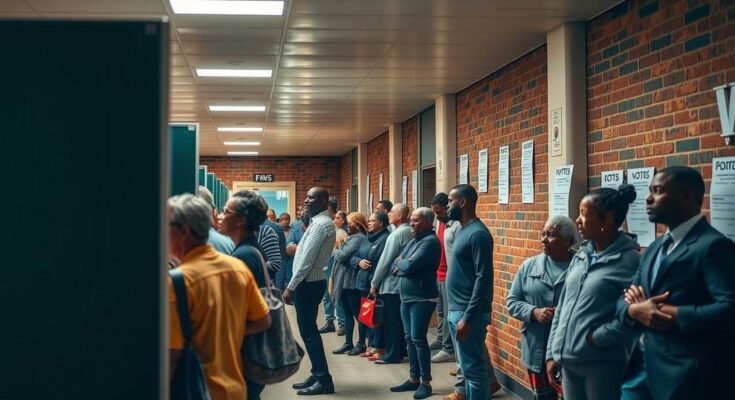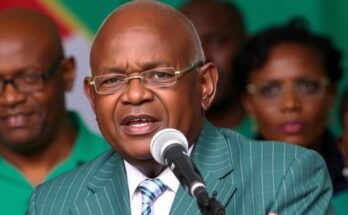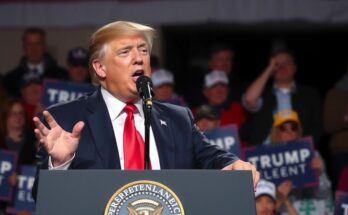Namibia has extended its presidential and parliamentary voting period due to ballot paper shortages and technical issues, leading to allegations of electoral fraud from the opposition. While many voters continue to face difficulties exercising their rights, logistical challenges at polling stations have raised concerns about the electoral process’s integrity.
Namibia has extended its voting period for the presidential and parliamentary elections due to unforeseen technical difficulties and shortages of ballot papers. The decision of the electoral commission has faced scrutiny from the opposition parties, specifically the Independent Patriots for Change, who argue the extension violates election regulations and casts doubt on the electoral integrity. Voter lines have remained lengthy, with numerous citizens unable to exercise their right to vote as polling stations struggled with logistical challenges and unfulfilled ballot paper deliveries.
Amid the ongoing electoral process, long lines were observed at polling stations across the country, with many rural areas still awaiting necessary supplies. For instance, voter Nangombe Shitaleni expressed frustration at the prolonged wait, stating that he had been attempting to vote since Wednesday without success. The scenario has raised concerns about the transparency and fairness of Namibia’s electoral procedures, reminiscent of the tumultuous elections in neighboring Mozambique.
Namibia, a nation emerging from a history of German colonial rule and subsequent South African administration, has been recognized as a stable democracy in Southern Africa. Governed by the SWAPO party since gaining independence in 1990, the country has traditionally held credible elections. However, recent economic challenges, particularly high unemployment rates among its youth, have prompted rising dissatisfaction with the ruling party. The current electoral climate reflects a growing tension between traditional political foundations and the demands for innovative change within a restless populace.
The extension of voting in Namibia due to logistical challenges and ballot shortages has sparked allegations of electoral fraud from opposition parties, specifically the Independent Patriots for Change. With the youth expressing discontent over economic conditions and governance, the credibility of this electoral process hangs in the balance. Observers note that Namibia’s historical status as a stable democracy may be tested if these logistical issues lead to broader disenfranchisement of voters.
Original Source: abcnews.go.com




